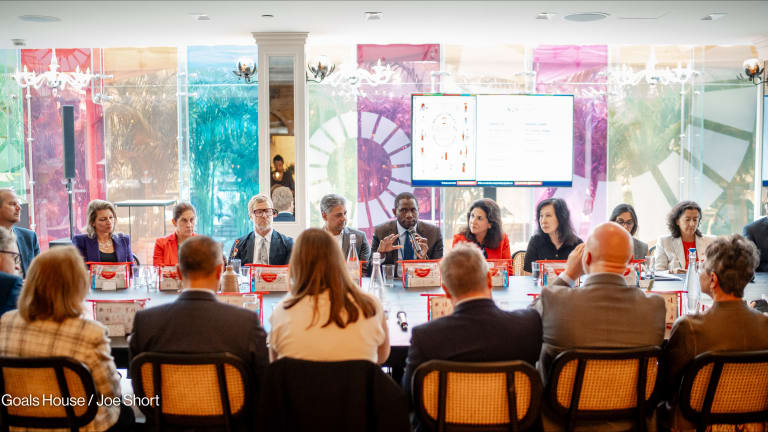
UNITED NATIONS — Though the 2030 development agenda has been incorporated into national government structure and policies, it does not always translate clearly at the local level.
Bangladesh, for example, appointed individual Sustainable Development Goal focal people to each government ministry. It’s their job to oversee SDG implementation, but these experts still sometimes rely on local civil society groups to serve as informal liaisons for community discussions when they travel to remote areas.
“It has to be a localizing of the goals, not only contextual but also attitudinal and cultural.”
— Rasheda Choudhury, executive director, Campaign for Popular EducationCommunities often have a basic question about the SDGs, said Rasheda Choudhury, the executive director of Dhaka-based network Campaign for Popular Education.
“OK, it’s a national policy. What’s that?” Choudhury told Devex during this month’s U.N. High-level Political Forum.
“There are lots of things happening at the national policy, programming, and implementation level, but there is still a disconnect between what is happening at the local level and the national level,” Choudhury explained. “Civil society and activist groups are trying to bridge that gap, bringing in community voices, particularly in terms of implementation of the SDGs and familiarizing the SDG agenda with the local community.”
Local implementation and financing gaps of the 2030 development agenda are common in many countries, development experts, mayors, and civil society representatives said during a two-day event hosted by the U.N.-wide platform Local 2030, which holds UN-Habitat, the International Labour Organization, U.N. Development Programme, Organisation for Economic Co-operation and Development, and some local cities and civil society groups as members.
The session, which wrapped on July 17, was part of the broader U.N. High-level Political Forum on Development, during which 47 countries shared their progress on the SDGs.
SDG implementation remains scattered at the local and regional levels, with only a few cities implementing and tracking their own SDG plans. New York was the first city to report its progress on meeting the 17 SDGs in 2018. Other regions, like Spain’s Basque Country, and cities, like Los Angeles and Buenos Aires, are also tracking their own progress on the goals.
Only 42% of countries gave local and regional governments an active role in preparing the country voluntary national reviews of the SDGs, for example, according to Parks Tau, former mayor of Johannesburg and president of the global network United Cities and Local Governments, an organization that represents cities and local governments.
“Implementing the SDGs from the bottom up will allow communities to own the Global Goals. This is the only way we will reach them. Basic service implementation is critical on the local level,” Parks said during the Local 2030 event.
More investment in local and regional governments is also necessary for helping these authorities act on the education, health, climate, and equality goals.
Local and regional governments, on a global average, account for 37% of total public investment, UCLG and the global taskforce of local and regional governments reported in their third HLPF report, “Towards the Localization of the SDGs,” released on July 14.
“Access to finance is so important. When you meet mayors of medium-sized cities, you see that access is not straightforward and preparing requests for funding [from the government] is not always straightforward. These cities need capacity building urgently,” said Mohamed Sefani, mayor of Chefchaouen, Morocco, speaking at the Local 2030 event.
Adapting to the unique needs of local populations is also key in making the Global Goals tangible, Choudhury said.
While the global level of participation in early childhood education has risen since 2010, stats at regional and local levels can tell a different story. For example, more than 76% of children in South Asia still lack basic proficiency in mathematics, and 81% of children there also lack basic proficiency in reading. And there is stalled progress on reaching children not enrolled in school.
Since 2015, Bangladesh has rolled out textbooks in six ethnic languages, reaching more than 200,000 primary school students across the country. This has resulted in a boost in enrollment but is not a quick fix for improving school admittance and retention. Local teachers are often unqualified, and more training is needed, Choudhury said. For now, parent teachers are being enlisted.
“It has to be a localizing of the goals, not only contextual but also attitudinal and cultural,” Choudhury said. “We now need teachers from local communities — we have parent teachers, with training, and they are trying to get the job done. But fully qualified professional teachers cannot be replaced by parent teachers. So there is a gap.”








